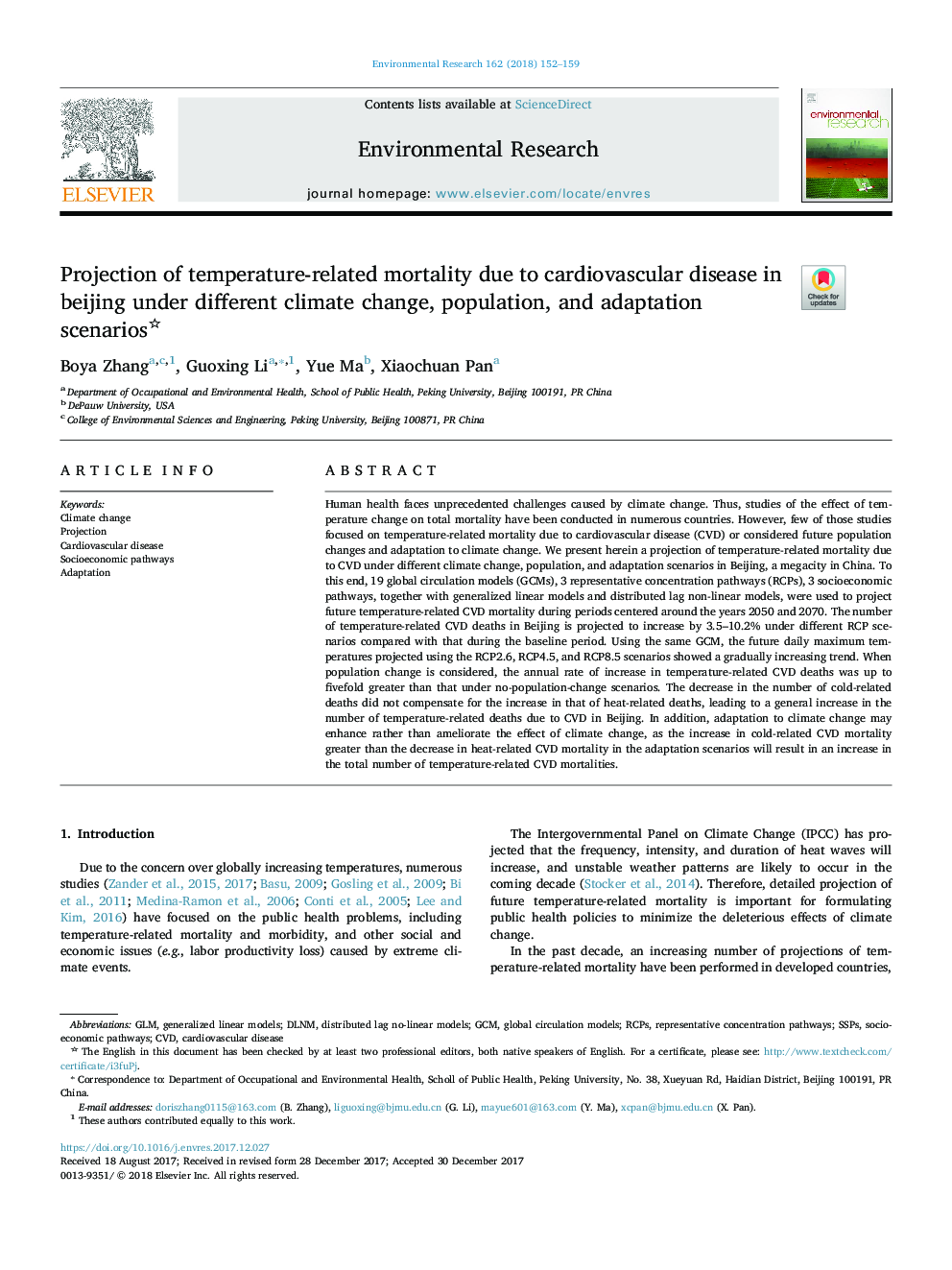| کد مقاله | کد نشریه | سال انتشار | مقاله انگلیسی | نسخه تمام متن |
|---|---|---|---|---|
| 8869137 | 1622541 | 2018 | 8 صفحه PDF | دانلود رایگان |
عنوان انگلیسی مقاله ISI
Projection of temperature-related mortality due to cardiovascular disease in beijing under different climate change, population, and adaptation scenarios
ترجمه فارسی عنوان
پیش بینی مرگ و میر ناشی از دما به علت بیماری های قلبی عروقی در پکن تحت تغییرات مختلف اقلیمی، جمعیت و سناریوهای انطباق
دانلود مقاله + سفارش ترجمه
دانلود مقاله ISI انگلیسی
رایگان برای ایرانیان
کلمات کلیدی
موضوعات مرتبط
علوم زیستی و بیوفناوری
علوم محیط زیست
بهداشت، سم شناسی و جهش زایی
چکیده انگلیسی
Human health faces unprecedented challenges caused by climate change. Thus, studies of the effect of temperature change on total mortality have been conducted in numerous countries. However, few of those studies focused on temperature-related mortality due to cardiovascular disease (CVD) or considered future population changes and adaptation to climate change. We present herein a projection of temperature-related mortality due to CVD under different climate change, population, and adaptation scenarios in Beijing, a megacity in China. To this end, 19 global circulation models (GCMs), 3 representative concentration pathways (RCPs), 3 socioeconomic pathways, together with generalized linear models and distributed lag non-linear models, were used to project future temperature-related CVD mortality during periods centered around the years 2050 and 2070. The number of temperature-related CVD deaths in Beijing is projected to increase by 3.5-10.2% under different RCP scenarios compared with that during the baseline period. Using the same GCM, the future daily maximum temperatures projected using the RCP2.6, RCP4.5, and RCP8.5 scenarios showed a gradually increasing trend. When population change is considered, the annual rate of increase in temperature-related CVD deaths was up to fivefold greater than that under no-population-change scenarios. The decrease in the number of cold-related deaths did not compensate for the increase in that of heat-related deaths, leading to a general increase in the number of temperature-related deaths due to CVD in Beijing. In addition, adaptation to climate change may enhance rather than ameliorate the effect of climate change, as the increase in cold-related CVD mortality greater than the decrease in heat-related CVD mortality in the adaptation scenarios will result in an increase in the total number of temperature-related CVD mortalities.
ناشر
Database: Elsevier - ScienceDirect (ساینس دایرکت)
Journal: Environmental Research - Volume 162, April 2018, Pages 152-159
Journal: Environmental Research - Volume 162, April 2018, Pages 152-159
نویسندگان
Boya Zhang, Guoxing Li, Yue Ma, Xiaochuan Pan,
